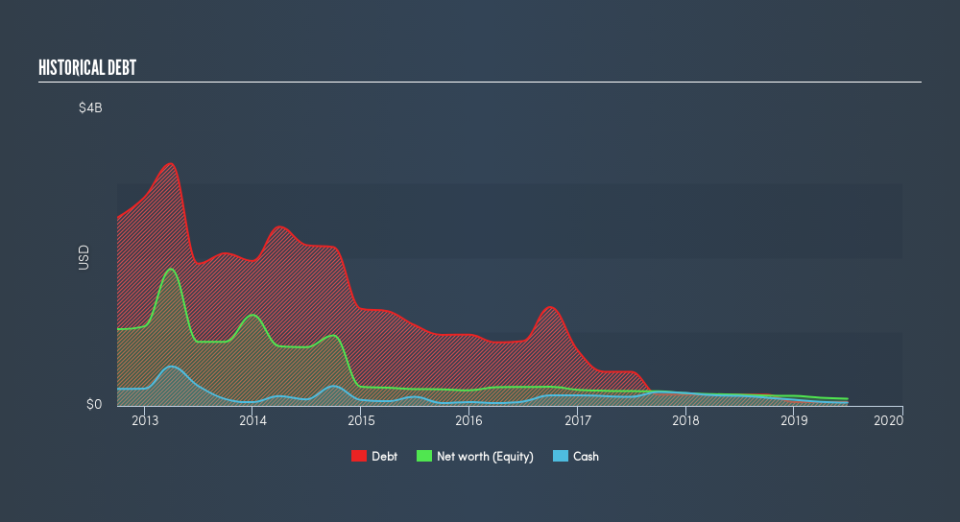Does Drive Shack (NYSE:DS) Have A Healthy Balance Sheet?

Legendary fund manager Li Lu (who Charlie Munger backed) once said, 'The biggest investment risk is not the volatility of prices, but whether you will suffer a permanent loss of capital.' So it seems the smart money knows that debt - which is usually involved in bankruptcies - is a very important factor, when you assess how risky a company is. We note that Drive Shack Inc. (NYSE:DS) does have debt on its balance sheet. But the more important question is: how much risk is that debt creating?
When Is Debt Dangerous?
Debt assists a business until the business has trouble paying it off, either with new capital or with free cash flow. If things get really bad, the lenders can take control of the business. However, a more usual (but still expensive) situation is where a company must dilute shareholders at a cheap share price simply to get debt under control. Of course, plenty of companies use debt to fund growth, without any negative consequences. When we examine debt levels, we first consider both cash and debt levels, together.
View our latest analysis for Drive Shack
How Much Debt Does Drive Shack Carry?
As you can see below, Drive Shack had US$51.4m of debt at June 2019, down from US$168.6m a year prior. However, because it has a cash reserve of US$45.3m, its net debt is less, at about US$6.13m.
A Look At Drive Shack's Liabilities
The latest balance sheet data shows that Drive Shack had liabilities of US$96.9m due within a year, and liabilities of US$365.1m falling due after that. Offsetting these obligations, it had cash of US$45.3m as well as receivables valued at US$6.34m due within 12 months. So its liabilities outweigh the sum of its cash and (near-term) receivables by US$410.3m.
When you consider that this deficiency exceeds the company's US$345.9m market capitalization, you might well be inclined to review the balance sheet, just like one might study a new partner's social media. In the scenario where the company had to clean up its balance sheet quickly, it seems likely shareholders would suffer extensive dilution. There's no doubt that we learn most about debt from the balance sheet. But it is future earnings, more than anything, that will determine Drive Shack's ability to maintain a healthy balance sheet going forward. So if you want to see what the professionals think, you might find this free report on analyst profit forecasts to be interesting.
Over 12 months, Drive Shack saw its revenue drop to US$282m, which is a fall of 8.9%. That's not what we would hope to see.
Caveat Emptor
Over the last twelve months Drive Shack produced an earnings before interest and tax (EBIT) loss. To be specific the EBIT loss came in at US$34m. When we look at that alongside the significant liabilities, we're not particularly confident about the company. We'd want to see some strong near-term improvements before getting too interested in the stock. Not least because it burned through US$97m in negative free cash flow over the last year. That means it's on the risky side of things. When we look at a riskier company, we like to check how their profits (or losses) are trending over time. Today, we're providing readers this interactive graph showing how Drive Shack's profit, revenue, and operating cashflow have changed over the last few years.
When all is said and done, sometimes its easier to focus on companies that don't even need debt. Readers can access a list of growth stocks with zero net debt 100% free, right now.
We aim to bring you long-term focused research analysis driven by fundamental data. Note that our analysis may not factor in the latest price-sensitive company announcements or qualitative material.
If you spot an error that warrants correction, please contact the editor at editorial-team@simplywallst.com. This article by Simply Wall St is general in nature. It does not constitute a recommendation to buy or sell any stock, and does not take account of your objectives, or your financial situation. Simply Wall St has no position in the stocks mentioned. Thank you for reading.

